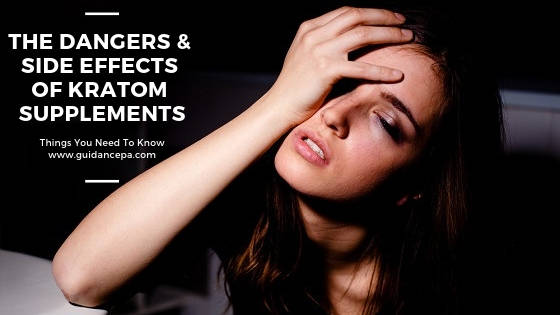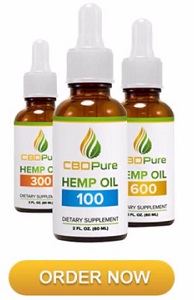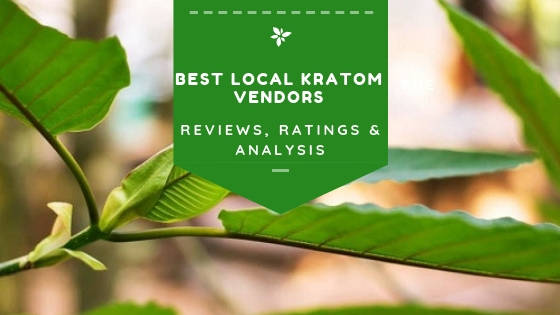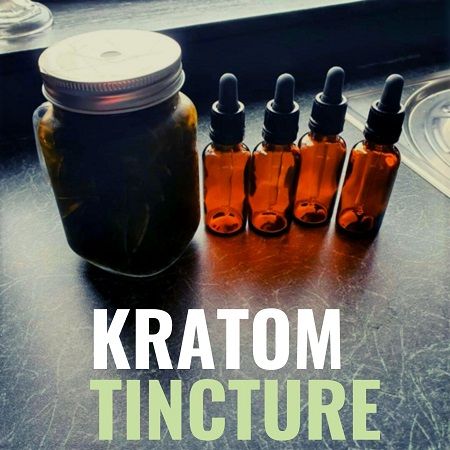Mitragynaspeciosa (Kratom) is a legal (for now) natural supplement that is reported to help curb addiction to opioids and alcohol, diminish physical pain, as well as relieve stress and anxiety.
Users of Kratom supplements swear by their holistic healing properties. If that is the case, then why is the FDA cracking down on this substance and pushing to classify it as a Schedule I narcotic along with heroin and LSD?
While people may be benefiting from the various types of Kratom, it is important to understand the potential downside.
Education is key if you are going to properly treat unwanted symptoms and ailments at home with natural remedies.
Trust me. You don’t want to pull a Jilly Juice. You don’t know? Oh, well let me enlighten you.
This cure-all concoction made of Himalayan salt and cabbage is sold by a lady (named Jilly) who claims this juice will regrow limbs and make you live until you are 400.
Yes, this is a real person selling her juice to real people. End of story time! Now, let’s get back to the reason I am writing this article.
You need to know the facts about Kratom: the good, the bad, and the ugly. That is why I have taken the liberty of compiling the top seven dangers of using Kratom supplements that you should know. You can thank me later.
How To Use Kratom Supplements Safely?
If you are going to use Kratom for any reason, there are a few things you need to consider before you incorporate it into your regime.
First off, there are no laws that hold manufacturers and Kratom suppliers liable for quality and consistency.
Also, you can’t always trust the label. Because kratom isn’t regulated, your supplement could have more ingredient than the label states, which means you could overdose.
And finally, Kratom isn’t meant to cure disease or treat symptoms. Utilizing supplements with medicines or in place of them could seriously harm you.
Let me reiterate: just because it is natural doesn’t mean it is safe.
Why Is Using Kratom Considered A Risk?
There have been hundreds of calls to poison control across North American regarding the use of Kratom.
In fact, over two hundred and sixty people called poison control in the U.S alone. The DEA has been trying to enforce a ban for the last three years, and finally dropped any attempts.
However, Kratom is banned in a few states like Indiana, Tennessee, Louisiana, Alabama, Arkansas, Vermont, and Wisconsin.
In 2017 the FDA issued a warning about using kratom and cited thirty-six deaths associated with the supplement.
Drug Interactions And Kratom
In February of last year (2018), the FDA announced there had been a total of 44 deaths linked associated with using Kratom.
An overdose of Kratom caused not all deaths. For example, one case is of a teenage boy who committed suicide because of his severe depression and use of prescription drugs.
Mixing illegal drugs with Kratom and other prescriptions like tramadol and benzodiazepines is a fatal concoction.
While we may not know which of the drugs are causing death and severe health problems, we do know that mixing substances (like alcohol and medications) without being adequately monitored by medical professionals can be deadly.
Short-Term Side Effects Of Using Kratom Supplements
Because we are so unique, our biochemistry, our medical conditions, and our environments play a crucial role in how one is affected by using natural supplements.
The short-term side effects I feel can be entirely different for you. Taking kratom in small and large doses will affect the body differently. For those using kratom to treat physical pain, you may consume up to 15 grams of kratom.
A high amount will give sedative effects like a prescription opioid. Using the supplement in smaller doses can create a stimulating, or uplifting, effect.
Short-term side effects that have been associated with the use of kratom are itching, sweating, diarrhea, fast heartbeat, loss of muscle coordination, nausea, and possibly drowsiness.
Do you see how different these effects are? One person may suffer from constipation while another may experience diarrhea.
Addiction & Withdrawal
Just like cannabis and other plants that are being used as therapeutic and medical treatments, there is not much scientific research to explain long term effects and levels of addiction.
Today, we do not know how severely (if at all) the withdrawals of Kratom are, and we don’t know if the supplement is habit-forming.
The information we need to make a decision that is both educational and informative is severely lacking because most evidence about dependency and withdrawal is based on case reports- people who use Kratom.
Studies from overseas suggest that the users of Kratom who quit experienced withdrawal symptoms. These side effects happen when you stop using any substance that is addictive: nicotine, caffeine, opioids, and possibly cannabis.
While some researchers imply that addiction is a physical disease, others insist it comes from one’s mental state. Meaning, you choose and control to become addicted. Yeah, okay, and I also choose to be struck down with lightning too, right?
The reported withdrawal symptoms of quitting Kratom can be broken into two categories: physical symptoms and psychological symptoms.
Psychological symptoms of Kratom may include bursts of anger, severe mood swings, nervousness, sadness, restlessness, and even depression.
Possible physical symptoms of Kratom are body aches, sleep disorder, camps, hot flashes, fever, muscle pain, diarrhea, and nausea/vomiting.
Long-Term Side Effects Of Using Kratom Supplements
Several studies are coming from Malaysia and Thailand that express concern of using kratom long term.
High doses and long-term use of Kratom can cause weight loss, seizures, dry mouth, appetite loss, tremors, constipation, frequent urination, and straight up psychosis.
There have been very little studies regarding the long-term effects of kratom used, so it is difficult to know the true extent of long-term effects.
Safety Risks: Contamination
Any product can be contaminated especially when this product is a natural supplement that is not well regulated.
In the statements released by the FDA, products of Kratom can become contaminated with drugs like hydrocodone.
Taking too large of a dose has potential life-threatening risks including death. Salmonella is another major concern when it comes to contamination.
Last year, nearly two hundred people became ill from contaminated Kratom products in over forty states.
The CDC, FDA, and even the DEA all consider kratom to be a dangerous product that should not be consumed.
Mental Disorders
Just because it is legal, doesn’t make it healthy. Let me be a little harsh for a moment. Sometimes everyone needs a little tough love. If you are a weak-minded person, you are susceptible to relapsing and developing new addictions.
When you suffer from a mental health disorder, nearly everything affects how you feel. Your weight, height, environmental stressors, the prescriptions you take, and the natural products you use, right down to the food you eat.
Again, this whole lack of research thing means there’s no concrete proof that Kratom can negatively impact any mental health issue you may suffer from.
Do you have depression? Using kratom enhances your mood? Great. Or it can go a little like this: you have depression? Using Kratom makes you sweaty, paranoid, and nervous? Not so great.
Lack Of Regulation
As I write this not only is Kratom banned in various countries across the globe and states within the use, it is also unregulated where it is legal.
The effects are unknown because the substance isn’t regulated- and vice versa. This vicious cycle will continue with no end unless more scientific research and clinical trials are done.
Young adults and teens are using Kratom and have no idea if it is addictive, how to dose it correctly, or what the potential long-term side effects are.
Those with drug addiction are seeing Kratom as a cure-all supplement that can kick harsh opioid addictions.
My question to you: are you really kicking a habit, or are you substituting one substance for another?
Researchers need to explore the medical effects of this plant. Think about cannabis. It was a highly illicit Schedule I narcotic, unregulated, and hated on by the DEA, FDA, and other governing agencies.
Now, it is recognized a medically beneficial therapy for many conditions, ailments, and debilitating symptoms.
In Conclusion
Using any supplement that is not regulated will most likely be held to poor standards of quality. The same is true for Kratom.
The biggest reason Kratom can be dangerous, cause short & long-term side effects, and harm a patient is because of the lack of research and regulation.
You can draw a lot of parallels from cannabis. Before scientists and researchers began investigating and experimenting, marijuana was an illicit drug that holds zero medical properties. That is not the case today.
CBD and other compounds of cannabis are even being legalized, one step closer to regulation. Kratom is in a similar boat. Until there is more research, education, and regulation, you will never know what you are consuming and if it will cause you to harm in the future.
If you are experiencing any type of pain, mental or physical, you need to speak to a professional.
I said to speak with them, not take every word they say as holy gospel. At the end of the day, you know your body best. So, listen to it.
Have you suffered any adverse side effects of using Kratom? Do you believe Kratom is medically beneficial?
We want to hear your thoughts, stories, and any advice you may have for those looking into using kratom for the first time. Stay lifted, friend!
Rate This Article
[ec_stars_rating]
















